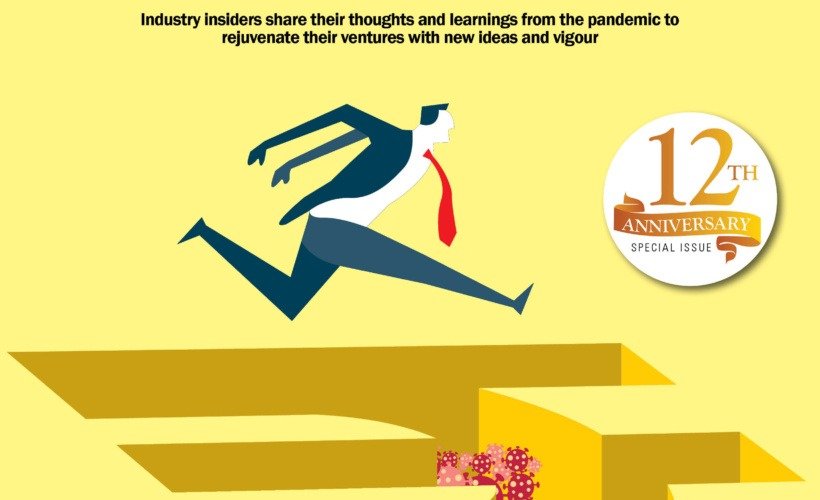
Industry insiders share their thoughts and learnings from the pandemic to rejuvenate their ventures with new ideas and vigour
As we crawl back to normalcy after the second wave of covid, faced with other societal challenges, leaders of various businesses, speak on their ability to lead, endure the long road ahead and build trust among all stakeholders.
One of the most popular topics in positive psychology is resilience. Resilience can be defined as the ability and tendency- to ‘bounce back.’
‘Bouncing back’ is what we do when we face disappointment, defeat, and failure; but instead of wallowing or letting things keep us down, we get back up and continue with our lives.
Globally, Covid is a public health emergency, which has hit countries all over the world. Health emergencies remain a constant threat to developing countries and local populations.
Just as Goa was recovering from the first wave of Covid, and the economy limping back to normalcy, the second wave hit us, more potent and terrifying than the first, which sent whatever little normalcy we had, flying out of the window.
As a State that depends on tourism, the travel restrictions in place meant tourism and allied industries were affected.
Businesses were not sufficiently prepared for the magnitude of the crisis that they would face and the impact it would have on their operations.
What does the road to recovery look like? Every industry has a different story, as will the businesses based on how each one of them operates.
Our Cover Story highlights various leaders from different sectors and how they have persevered during these difficult times, having to live on hope and work with sheer grit and determination in order to bounce back from the impact of the second wave.
The future of each organization, though, is not preordained. As resilient leaders, one of the most critical roles right now is to sustain: to sustain their people, many of whom are experiencing not only fatigue but more stresses than they ever have; to sustain their organizations in continuing to create value for all stakeholders, and to sustain society as it experiences multiple existential threats. However, just as important, they must also sustain their own ability to lead so that they can continue to serve over the long journey ahead.
“LOOK AT VALUE CREATION RATHER THAN ONLY PROFIT”

The biggest challenge faced during Covid was the uncertainty, seeing people struggle coupled with the loss of livelihoods amidst a terrifying health scare. Shrinivas says, “If there’s one thing that I learnt from the pandemic, is about how indomitable the human spirit can be. When things were falling apart, and everyone was in panic, there were many good Samaritans who pitched in to help in every way possible.” Be it home kitchens delivering food, creating a portal on social media to reach out to the people, arranging oxygen cylinders, are some wonderful examples of the varied acts of kindness, which came as a bright ray of hope to us in times of darkness. Due to the pandemic, businesses have to adjust to changes in the way they work. The work from home culture have led companies to digitize at least some part of their business to protect employees and serve customers facing mobility restrictions as a result of the covid-19 crisis. “We have vaulted five years forward in consumer and business digital adoption in a matter of around eight weeks. Banks have transitioned to remote sales and service teams and have launched digital outreach to customers to make flexible payment arrangements for loans and mortgages. Grocery stores have shifted to online ordering and delivery as their primary business. Schools in many locales have pivoted to 100 percent online learning and digital classrooms”, he added. As far as bouncing back in a covidised economy is concerned, “We have to look at businesses from a prism of a startup, be nimble footed, agile, more flexible and look at creation of value rather than only profit”. His advice for budding young entrepreneurs is, “Be agents of change, look at the bigger picture and keep in touch with global trends.”
“THE NATURE OF BUSINESS AND THE DYNAMICS HAVE CHANGED. EVALUATE YOUR STEPS CAREFULLY”
Bouncing back isn’t a reaction that we can control, we can only react to a given situation, says Deepak Tripathi with regard to Tulip Diagnostics. The impact of covid-19 and the second wave has been a different experience for him, as well.

There was a spike in demand for covid related products but the issue lay in the fact that while the demand for covid related products did escalate, their other products such as tests for malaria, pregnancy or blood banks took a big hit. “All the sales we lost with the routine sales products for the time being have been taken up by the covid related items. But now that the covid related items rate has gone down and the demand for the routine products hasn’t picked up, maybe in the next few months we will have an excess sales and production capacity”, says Tripathi with regard to the effects of the second wave in Goa.
“A big takeaway from the pandemic and these unpredictable times is that companies should minute cost control because demand is a little sloppy. We have to be protective about our spending, and we have to be careful and take care of the people who are exposed to the pandemic.” His advice to budding entrepreneurs is, “Don’t rush into projects, you should carefully evaluate what you are getting into because the nature of business and the dynamics have changed. You have to be mindful of your investments as to where you are going and how these pandemic related uncertainties, like the first and second wave, could impact your business.
“EVERY PROBLEM CREATES OPPORTUNITY”
I don’t think the third wave will come in. I don’t think people will let their guards down. We will have to be careful until at least 2024-25, I don’t see this virus going away. We have to have a very appropriate mechanism in place to counter the first signs of growing infections. We have to see the first signs before it becomes a wave, it is something we will have to get used to”, says Atul Pai Kane, with optimism in regard to the third wave of covid-19.
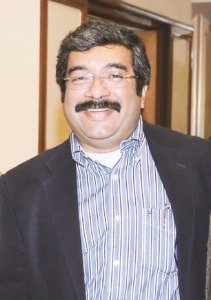
After the passing of the first wave, most people let their guard down, we didn’t think about the second wave, or how it was coming. There was a lack of preparedness from the government as well as at a social level, but Atul doesn’t expect there to be third wave in Goa, “We’ve built up the medical facilities quite a lot now, and a lot of the Goan population have gotten vaccinated, and by September whoever are eligible will have the second dose which is why I believe that the wave will be controlled; but there will be infections.” In spite of being a life threatening disease that’s lurking around in the shadows COVID-19 has created a lot of opportunities for entrepreneurs, “Young entrepreneurs should focus on the opportunities that are caused due to the pandemic. They should look at what service or products can improve the lives of people which could be affected because of COVID, like not traveling, not going out, not eating at restaurants, there are opportunities that every situation creates. We never had a food delivery system in Goa as efficient as the one today.” Every problem creates some opportunity. As entrepreneurs, we should look at what niche or collateral strength available to us meets that requirement. “They should focus on building up, in their SWOT analysis if they see any strength in their opportunity, they should focus on that and build upon it. I don’t think they should get into diversification at this point, the idea would be to build on their strengths”, affirms Atul.
“ENTREPRENEURSHIP IS A LONG JOURNEY”
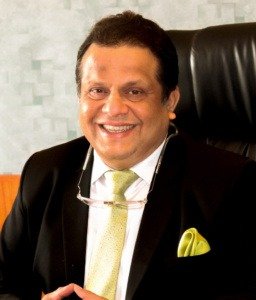
Getting through the second wave was quite challenging and stressful, but Shekhar Sardessai powered through by keeping in mind that the positive energy you create within yourself comes back to you as positivity from the environment around you.
The second wave was an unseen enemy. A big concern for Shekhar during this time was the health of his employees. Social distancing was in play but it is a hard task to conduct among 850 people working together, with staff quarters and shared dormitories used by employees. The second wave almost spread overnight but with quick reactions to the situation, employees were evacuated and quarantined, containing the situation very well. Despite all of this, Shekhar truly believes that everything happens for the better, “We all must believe that there is a good reason for anything that happens, and once you start believing that anything good or bad happens for a greater good, you start thinking positively. That’s how I look at this covid situation.” Having this optimistic attitude has allowed him to stay motivated and motivate others, turning things around at work and at home. Shekhar saw the pandemic pause to be a good thing, “Covid was a good pause that let us look at things in different perspectives. We were running after everything in our life whether it is business, prosperity, enjoyment, we looked at it in a unidirectional way. The slow down during covid allowed us to pause and think about all the other things that we had been doing, looking at businesses in a different way, we had time to correct things that weren’t visible to us, things we never took a pause to think about.”
Growth should always follow with a pause for us to digest and process the changes, it helps us create a sustainable trajectory for more growth in the future. Shekhar says, “Entrepreneurship is not something you get into to earn a little amount of money, I would call that as a business venture. In entrepreneurship, if you make money an instrument of your pursuit in your first few years, it is bound to fail at some point in time, because entrepreneurship is a long journey and you have to keep pursuing it.”
His single most important advice to entrepreneurs is very simple and clear, “Entrepreneurship is to create some value, once you create value, it will create wealth. Value is something that can never be destroyed, wealth can be destroyed. If you create value, it can be encashed into wealth at an appropriate time, focus on creating that value”, he says.
“IF A BUSINESS HAS SURVIVED THE PANDEMIC, THEY WILL BE STRONGER IN THE FUTURE”
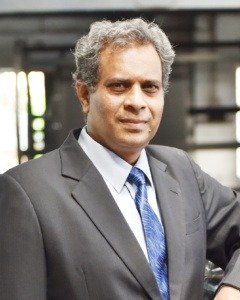
From traveling almost every week to taking just one flight in the past 15 months, Blaise Costabir’s biggest takeaway from this pandemic was his companies shift is to the online world. According to him, it was a crucial move to continue business. With all client meetings online, designers could join in to the meeting and what once was a long process of travel and stay, became something compact and accessible within the comfort and safety of his home and office. “The pandemic has shown that the fundamentals haven’t changed – quality, cost and delivery are a given. The way you do your business has to be right”, he says. When asked for advice for young budding entrepreneurs, Blaise highlights the importance of finance. “People should be looking at their business models and focus on their returns on investments”, he talks about how small businesses that start up and gain quick wealth go into a loss due to unnecessary purchases by the owners and heads. His advice to the youth would be to sustain their business, “A business should run for more than just a few months, they can’t be living hand to mouth. You need to sustain, there has to be some reserve.” If a company has gone through the pandemic and comes out on the other side, they will be stronger in the future.
“WE HAVE TO BE PREPARED FOR ANYTHING IN LIFE”
There is a big difference between being in control and being controlled, but making the most out of both these situations is an art and Satish Shinde has mastered it. The second wave did have quite a few setbacks – more people were affected by covid, strict lockdowns were instated and there was the fear within the employees about attending work and risking their health.

But SOPs were followed, factories were sanitized and distancing as much as possible were put in place. “We saw so many deaths happening in Goa, which was unlike the last time, during our peak last year. It was more of a fear psychosis among the people within our company. It had a major effect on our industry and sales for sure”, says Satish. They overcame this by vaccinating their employees. With 3-4 units across Goa, they got all their staff and contract workers vaccinated. They did lose a few days in the middle due to the side effects of the vaccines, the body ache and fever; but it made a big impact for them. The mental state of people improved after being vaccinated and knowing that their chances of being affected were less, creating a calmer environment for their employees to work in.
“It’s a learning. You have to be prepared for anything. It’s not always the lack of business skill or equipment or having the right product, but the unforeseen circumstances of this pandemic is never considered by most entrepreneurs, and this is a big learning, that we have to be prepared for anything and everything in life as well as business”, says Satish with regard to what the pandemic has taught him. “This pandemic will go away, but I believe that if the entrepreneur is passionate about his work nothing will stop him. He has to put in that effort and focus, with total clarity on what they want to do and just work towards it”, concludes Satish.
His advice to young entrepreneurs is to get their hands dirty, having first hand experience during the pandemic will help them factor in a lot of challenges and be better prepared for the future.
“I PRACTICE GRATITUDE ON A DAILY BASIS”
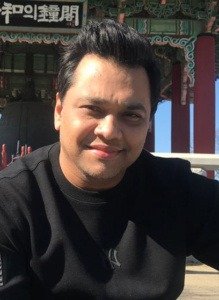
The second wave has done much more psychological damage than the first. This time, several friends and acquaintances succumbed to the disease, “This reinforced my resolve to be more mindful and practice gratitude on an everyday basis,” says Sumeet Bhobe.
Keeping his 20-year-old business afloat was a big challenge, “Being totally right-brained, I’m not good with money, so I had to navigate some really choppy financial waters,” he says. “This may sound fatalistic, but I believe that sometimes everything you do comes to naught. I remember a couple of years ago, my insurance consultant was telling me to take out a policy for loss of income for a paltry amount. I laughed it off. You get the point!” There’s a big churn happening, and an equal amount of good and evil will be part of that mix, call it naive, but Sumeet believes in always looking at the good side
“FOR YOUNGSTERS, THIS IS A FANTASTIC TIME TO GET INTO ENTREPRENEURSHIP”
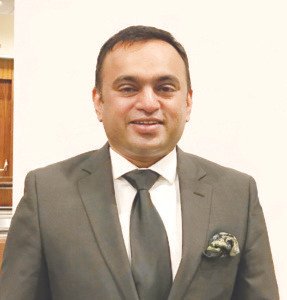
There continues to be a stigma attached to covid-19 that affects people as individuals as well as parts of companies. With his company’s biggest asset being its employees, Vijay Thomas talks about embracing covid-19 to help kill the stigma attached to people getting affected by the virus. He, along with his team started celebrating the people who came back to work post their interaction with the disease, groups were created for people that got covid to help them out and overcome its fear within the company. “It was important to embrace it rather than be afraid of it and sweep it under the carpet”, says Vijay. His biggest challenge throughout was keeping the employees motivated and driven. During the pandemic especially, people walked in and out of the doors instantly, to fulfil their own personal demands. “Trying to figure out how to keep them motivated and driven even in a work from home situation was a challenge, but we succeeded. We lost a couple of good people which might not have happened in a work environment but things change”, he says. ‘This is one of the best times in world history to be alive and be an entrepreneur’, says the CEO of Tangentia. There’s technology and so many different things
happening, a lot of the base technologies like the internet are going to revolutionize the way the world operates. “It’s almost like when electricity came in. As an entrepreneur you can use that electricity to build and do so many different things. The whole world is your canvas and for a lot of young people it is a fantastic time to get into entrepreneurship.” Three learnings Vijay stresses upon are, firstly, geography is now history, there is no geography. People can go anywhere in the world. Secondly, age is no bar, and thirdly, money is no bar. If you have entrepreneurial smarts, the money will come to you. Vijay concluded by saying, “Just do it, don’t think about it too much. As you go on and jump into the pool you don’t need all the answers, you’ll figure them out.”
“EMBRACING AGILITY AT SCALE IS KEY”
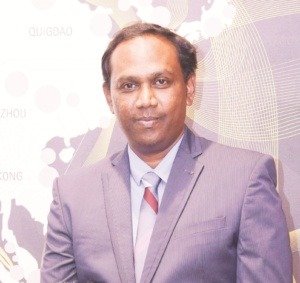
Thinking on your feet and coping with uncertainties is something business people are well versed with. These are skills you pick up with experience and time. “To cope with uncertainty and not knowing what to expect was challenging. The pandemic situation is unprecedented and a once-in-a-century kind of experience.
All businesses are in unexplored territory and looking for ways to find their feet. Coping with this change and unpredictability has been the biggest challenge for us. It is still an ongoing situation, and we have to be on our toes and be flexible and adapt accordingly,” says Atreya Sawant.
We have learned a lot from the second wave, but to a large extent, we can safely say that a lot of the damage done was avoidable. We as a society have to fulfill the responsibility towards each other and do the bare minimum that is needed. After all, precaution is better than cure, he says. “There is a positive momentum that continues to build on the market and economic conditions. But there is a lot that has already changed and will continue to evolve, such as the world economic order. Businesses are still trying to grasp the new normal, which leads to the new ways of working,” adds Atreya. His mantra to cope with the change is to be agile and adaptable, “To thrive in this volatile, uncertain and complex market, embracing agility at scale is key. It is not just about adapting to survive but adapting to win in this new world. Rethinking and re-strategizing is the need of the hour.”
Lastly, Atreya suggests not to waste time and begin on your plans today – or as Walt Disney said, “The way to get started is to quit talking and begin doing.”
“SYNERGY OF THE TEAM HELPS TO OVERCOME ODDS AND ATTAIN SUCCESS”
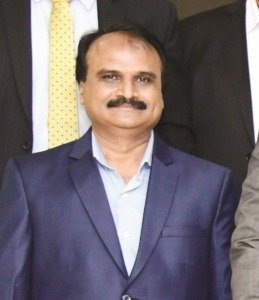
Accepting change and explaining it to other people is not an easy take. Being in a major industry with a significant employee base, Goutam Raj found it challenging to make his workforce understand the grave threats of the pandemic. “Despite this, the pandemic has helped the workforce adapt to new norms, protocols and as part of the management team, we consolidated this adaptive behaviour in the workplace. The biggest takeaway is that we could redefine and better connect between employees to understand the business requirements in challenging times,” he said. The pandemic has brought a lot of unforeseen expenditures while taking on new challenges, “To sustain the competition, one has to be cost-effective and utilise inherent capacities. Our renewed efforts have already shown results in terms of capacity utilisations jacking up from 89% to 95%, which is a new benchmark for a tire industry,” says Goutam.
His advice is to treat the pandemic as a mock drill into facing real challenges. “Most challenges are unfamiliar, and with agility, we have to face and look for alternatives by taking things in our stride. Our efforts should be to encourage the team all the time. It is the synergy of the team that helps to overcome odds and attain success.”
“BE FLEXIBLE TO THE CHANGES AROUND YOU”
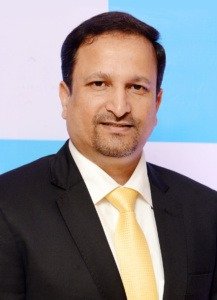
Covid-19 has reminded us that a home is an essential need, and people will always need space to live in and conduct their business from, regardless of how the market is faring. However, according to Denzil Xavier, the biggest change is that doing things the old way has been rendered obsolete during this pandemic. The industry needs to come up with new ways to complete tasks. “We have come to terms with the fact that how exactly the events would unfold and what their implications would be is anyone’s guess. The best we can do for now is adapt to changes while on a roll,” Denzil says. Embracing new technology and leveraging new opportunities is essential. One big change that the pandemic has brought about is accepting the work-from-home model as a viable work model. “We have found that buyer’s enthusiasm to own a home is even higher compared to the last three months. Thus, we are extremely positive to achieve superior sale figures compared to earlier months,” he explains. The uncertainty, fear, and panic caused by covid led to an initial slump in demand. With lockdowns and curfews, site visits and normal business activity were thrown off track. Commercial Realty was severely hit and will take a while to regain lost ground, but you need to believe in yourself and face your fears. He concludes by saying, “Be flexible to the changes around you and adapt and learn. Consistency is key for any business. You take care of your customer’s interest, and your business will take care of itself.”
“ACT FAST. STAY FOCUSSED ON YOUR GOALS”
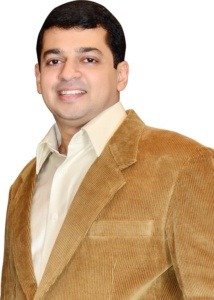
Staying connected to any part of the world is not an issue today. Vikram Verlekar talks about how despite modern means of video calling and Zoom meetings are available. Unforeseen conditions make it tough to stay connected with employees, friends, family, and customers. “Even in the tough times, we had to somehow keep our brand recall among our customers. It was challenging to understand the customer sentiment and the uncertainty of the market situation,” he says. The effects of the pandemic will continue to be a part of the new normal. The challenge is to stay on course through this pandemic and further strategising to protect the company from unintended consequences from the virus. “Information is wealth at a time like this. And communication is key. During the second wave, we improved our communication with customers and society through various campaigns trying to lift the overall mood. Going digital has been one of the biggest takeaways, although at Ulhas, we believe in the presence of physical stores to give their customers a personal touch,” explained Vikram.
Business is tricky and always comes with risks. But sometimes crises’ like these can be springboards to building successful companies. “The 2008 recession gave the world some hugely successful businesses like Whatsapp, Uber that people can’t do without today. My suggestion to young, budding entrepreneurs is to have a purpose behind doing a business other than mere profit and revenue. This itself could be a huge motivator. Secondly, act fast. The ability of an entrepreneur to act quickly in situations like these can make or break a company. During such times, one may think that everything is out of control, but one has to figure out what can be controlled and act swiftly. Every problem should be taken positively and should be turned into an opportunity.” Staying focused on your goal even during the tough times is the key to success.
“HUMAN RESILIENCE IS A BIG DISCOVERY”
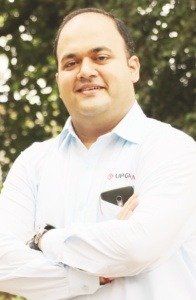
Necessity is the mother of invention; we are and will see a large number of innovations coming out of this catastrophe, says Pravin Kakode. Nobody was prepared for this abrupt disruption. We all were caught off-guard. Dealing with the loss of many near and dear ones, helplessness due to lack of adequate resources, and people’s suffering was the biggest pain. In the case of business, disruption of cash flow and supply chain was and is a huge challenge. Pravin says, “The biggest takeaway is the story of human resilience, the way the medical fraternity and many unsung heroes who, despite challenges and lack of resources, have stood up. It’s an absolute #ZaynaAsheKaiNa (Nothing is impossible).”
With the market already in transformation mode with new changes, Pravin stresses on the key role that digital technology will continue to play in the coming decades, “Methods of doing business are completely changing. We are at a cusp of change and are witnessing history in the making.” In the process of reinventing their company to suit current times, Pravin believes in the three pillars of transformation for his company to be people, process, and technology. “Ideas are only the salt in the biryani; execution is the rest of it.” His formula to success is, (Assess + Accept + Adopt) x Agility = Success.
“WE WILL SEE NEW BUSINESSES DISRUPTING CONVENTIONAL AND TRADITIONAL BUSINESSES”
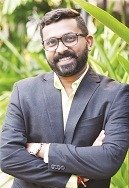
Switching from physically working within a work environment to working from home, with different distractions and poor connectivity issues, has been a challenge for businesses, especially with strict project delivery deadlines. The CEO of Umang Software and Immediate Past President of Goa Technology Association, Mangirish Salelkar, believes in adaptation and looking at change positively. “I think we have been able to adapt to this new normal. If we talk about health and the well-being of everyone, the second wave was more challenging than the first one. However, our newly introduced protocols have ensured smooth flow of work without disturbing much of the company’s business continuity planning,” he says.
A big part of looking at the positive side to situations is learning and being prepared for similar circumstances in the future, “I think most importantly, we should be ready for the worse that could happen. We are blessed to be part of the IT industry where we are still in good shape compared to others, who had to do a complete or partial shutdown,” he says. With remote working becoming quite a popular trend, many companies are looking into the right communication tools and procedures to enhance online productivity. Being part of the IT industry makes it easier, but each one reacts to change differently. “It has been hard for startups, many have even shut down. It might not be the most favourable time to start anything, no doubt that there is still huge scope for the IT industry. With new technologies, the demand is never going to stop. We will see new businesses disrupting conventional and traditional businesses,” concludes Mangirish.
“WATCH THE EMERGING TRENDS IN DEMAND AND CONSUMPTION”

Employees co-operating with the management and complying with safety protocols lead to safer working spaces, or as Yatin Kakodkar says, “Responsibility for safety lies with the people.” People must understand the importance of vaccinations. Vaccination for all is the only way for the economy to bounce back out of the pandemic. For our business, we are encouraging our employees to vaccinate themselves and their family members. Both the workplace and home have to be safe from the Covid-19 virus. The pandemic has exposed the vulnerabilities of governments worldwide, “The lesson for India is to increase the expenditure on healthcare from about 1-1.5% of GDP to about 3%. The corresponding figure for European countries is over 6-7%. In addition, institutions and the processes that deliver health care need to be strengthened for better impact of the money spent on healthcare,” Yatin says.
His advice to budding entrepreneurs is to be market-driven and keep a watch on emerging trends in demand and consumption, whether in the bricks-and-mortar or digital economies.
“BETTER BUSINESS SOLUTIONS ARE PRODUCED BY A MIND & SOUL WHICH IS IN EXPANSIVE MODE”
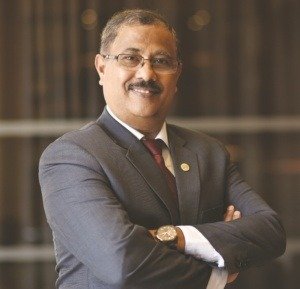
Positive and solution focused culture and ownership mindset in the team can help you overcome any challenge, says Rajkumar Kamat. Even in challenging situations, giving and supporting those who are more challenged or less fortunate helps in diluting the impact of your challenges, “Better solutions are produced by a mind and soul which is in expansive mode,” he says.
Rajkumar believes that change is the only constant, “For every business keeping track of the market trends, not only your own market but your customer’s markets, as well, is important. Staying agile and nimble through collaboration and co-creation is extremely crucial. This happens very naturally in a collaborative atmosphere that BNI fosters. EP Kamat Group’s pan-India market expansion plans are the fulcrum around tie-ups with market leaders of complementary products in different regions of India.”
The post covid economy is not going to be the same. We will be working within a new normal. The new normal will be highly productive as well as challenging, “Highly productive because with all of us getting used to virtual meetings, we will save so much of traveling time and money, as we use this mode often. Most of our activities are going to be in hybrid mode. We at EP Kamat Group will have our products display in experience centers for touch and feel; and we will also have virtual showrooms. For larger events, we would be able to have a few critical actors being physically present while thousands will be able to attend the event at fractions of the cost without moving out of their homes.” And challenging because things are going to change very fast, and we need to be prepared. Rajkumar and EP Kamat Group have already embarked on the journey. They have connected with potential customers in New Zealand and other countries, thanks to the BNI Network which he heads in Goa. “We are moving much faster without traveling, thanks to virtual meetings”, he says. His advice is to identify your passion areas and shortlist those which can be monetized. Do not worry about failures; taking risk, moving quickly and adapting as you move is very important, and above all, continuously pursue your entrepreneurial dream and help build a strong India.
“FOLLOW YOUR DREAMS”
If there was one industry that was hit the hardest during the pandemic, it was tourism, along with its allied industries, that bore the brunt of the world’s biggest health emergency. Suraj Morakar says that seeing the entire hospitality industry in a lockout, after opening a new hotel property, can be quite disconcerting. But it was also a blessing in disguise, in so far as his business was concerned. A brand new property and a spirited team raring to serve the people of Goa couldn’t be deterred by the pandemic. The emergency credit line scheme extended by the Government came in handy to keep the working capital requirements in place. The entire hospitality sector seemed to be in the same boat, feels Suraj.

About the changes in the market in the near future, Suraj says, “Tourism in Goa will now focus more on Indian tourists; create ‘minications’ and ‘staycations’ which are in vogue in the State right now. People’s interest in travel has increased tremendously during the month with several expressing desire to start travel immediately to get over the period of relative immobility brought about by the pandemic. The pandemic has made it clear that the future of tourism and the tourism of the future will undergo change. One of the sectors that has evolved the most since its inception, and which at the same time has been punished by the crisis, cannot remain stagnant while watching the storm pass. It is time to think about the next picture, which is getting increasingly closer.
About his plans of bouncing back, Suraj wants to continue creating a vibrant work culture, which induces and inspires one to do more business. He concludes with a message for budding young entrepreneurs, “Don’t let circumstances come in the way of your dreams.”
“CHANGE BUSINESS MODELS TO STAY RELEVANT”
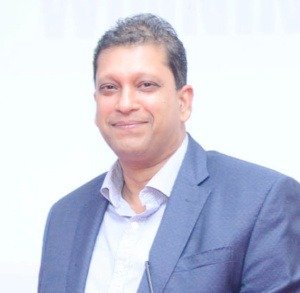
The way we do business has changed over time. The economy is getting digitized, business life cycles have shortened, all this has been happening before the pandemic, but the pandemic has hastened the process,” says Dean Menezes while highlighting the fact that ups and downs within a business are pretty common, but the effect of covid-19 over these common challenges has made it harder to overcome. “There is a lot of hardship and loss to some businesses, particularly restaurants, hotels, and other tourism and service businesses. These may take a long time to come back to normal if they can recover. There are disruptive technologies that will challenge existing businesses, such as what we see in retail, banking, and the travel industry. Future disruptions will happen in electric vehicles, power generation, which will upset the incumbents in these industries,” adds Dean, who believes that business models will need to change to keep up with the current times and ones to come.
The biggest challenge was maintaining the safety and health of the people in the organization at the front lines. Maintaining a safe working environment by providing all the safety needs and training and monitoring of people who were infected till they fully recovered became a daily process within the organization.
Presently they are occupied to ensure that all their people are vaccinated with both doses, including buying vaccines that are not available for their employees. “People who work for us are our strength, and we need to take care of them. Secondly, business and life will go on, and we will have to be flexible and learn to adapt and change. And lastly, the economy and society will irreparably change as a result of this pandemic. We will reach a new level of normal which we will soon take as given,” he says. To help get ahead of the change, Dean said, “Building and acquiring talent has always been an important part of our growth, and this is an ongoing process. And we have devoted part of our capital to invest in the new economy businesses/ startups in areas where we can support them to grow.”
His advice to the young is, “This is a terrific time for young entrepreneurs. The market is increasingly receptive to new ideas and technologies. Also, it has never been easier to raise money. We are moving into an idea economy where knowledge has value. If you have a product that fulfills a need or solves a problem 5X or 10X than the existing solution, there has never been a better time. There is tremendous value to be created either in businesses or as gig workers in the creative space. There is no better time than now to fulfill your dreams and passion”, he says.





